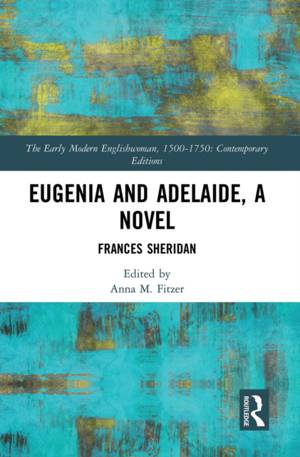
- Retrait gratuit dans votre magasin Club
- 7.000.000 titres dans notre catalogue
- Payer en toute sécurité
- Toujours un magasin près de chez vous
- Retrait gratuit dans votre magasin Club
- 7.000.000 titres dans notre catalogue
- Payer en toute sécurité
- Toujours un magasin près de chez vous
Eugenia and Adelaide, A Novel
Frances Sheridan
Description
Frances Sheridan's Eugenia and Adelaide is an astonishing first novel of parental tyranny, infidelity, kidnap, blackmail, and violence played out over two volumes against the backdrop of continental Europe. The friendship of Eugenia and Adelaide endures in spite of their separation at the beginning of the novel and remains central to a complex yet coherently drawn web of intriguing tales situated in palatial apartments and remote moss-covered castles. Drawing upon the tragic and comic possibilities of disguise familiar to her from Shakespearean and Restoration drama, and influenced by the romantic entanglements of early prose fiction, Sheridan adopts a sometimes satirical approach to extraordinary events at the same time that she demonstrates a sincere and convincing commitment to the ingenious art of storytelling. Sheridan completed the novel in 1739 when she was just fifteen-years old and Eugenia and Adelaide would prove instrumental to the establishing of Sheridan's literary reputation as one of the most successful novelists and dramatists of the mid-eighteenth century. This is the first modern edition of Eugenia and Adelaide to be published since the original posthumous publication of 1791 and presents a unique opportunity to explore Sheridan's contribution to our current understandings of the history of women's writing, and of reading tastes and practices in the long eighteenth century.
Spécifications
Parties prenantes
- Editeur:
Contenu
- Nombre de pages :
- 160
- Langue:
- Anglais
- Collection :
Caractéristiques
- EAN:
- 9781032092232
- Date de parution :
- 30-06-21
- Format:
- Livre broché
- Format numérique:
- Trade paperback (VS)
- Dimensions :
- 152 mm x 229 mm
- Poids :
- 226 g






